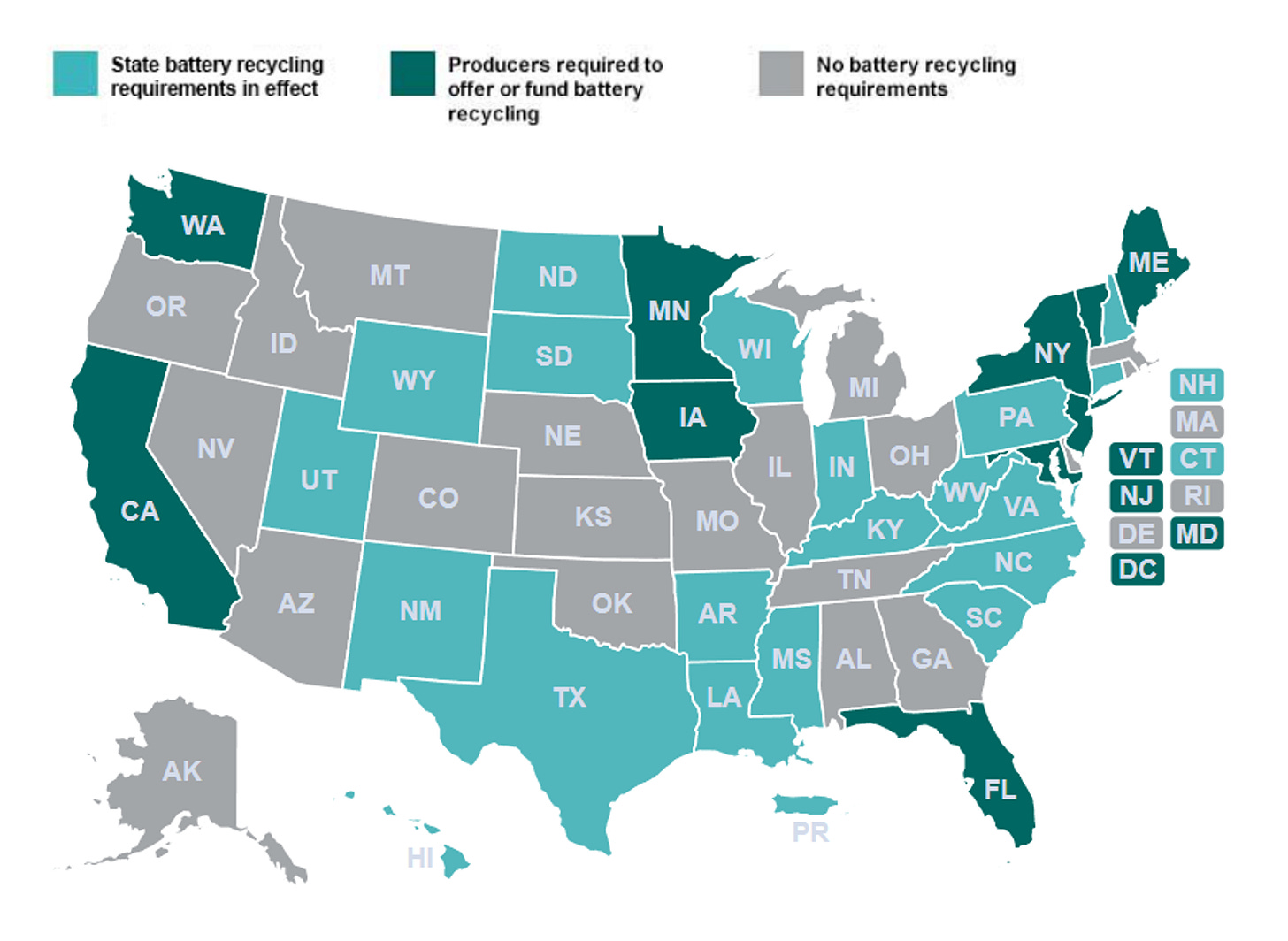1. Resource Conservation and Recovery Act (RCRA):
- Governs the disposal of hazardous waste, including certain lithium-ion batteries.
- Requires proper handling, transportation, and disposal practices.
- RCRA states that batteries such as lithium-ion "may exhibit a characteristic of hazardous waste" and "must be managed properly." This includes ensuring that batteries are not disposed of in ways that may harm the environment.
- Read more: Summary of the Resource Conservation and Recovery Act
- EPA Used Lithium-Ion Batteries
2. Hazardous Materials Regulations
- The PHMSA (Pipeline and Hazardous Materials Safety Administration) regulates lithium batteries under the U.S. Department of Transportation's Hazardous Materials Regulations (HMR; 49 C.F.R., Parts 171-180). These regulations apply because lithium batteries can pose significant risks during transportation due to their high energy density and potential for thermal runaway. Compliance with these regulations is crucial for safe transportation, whether by air, highway, rail, or water.
- Read more: Transporting Lithium Batteries
3. Recycling Laws By State

Figure 4: Battery Recycling Laws by State
Read more: Recycling Laws By State
California Provisions on Lithium-Ion Battery Recycling
4. California Universal Waste Rule:
- Classifies lithium-ion batteries as universal waste, simplifying their collection and recycling process.
- Prohibits disposal of these batteries in landfills, ensuring they are properly recycled.
- This regulation includes "batteries (including lithium-ion batteries) as universal waste," which facilitates easier and safer collection and recycling, emphasizing that "universal waste must be recycled or disposed of properly."
- Read more: California Universal Waste Rule
5. California Rechargeable Battery Recycling Act

